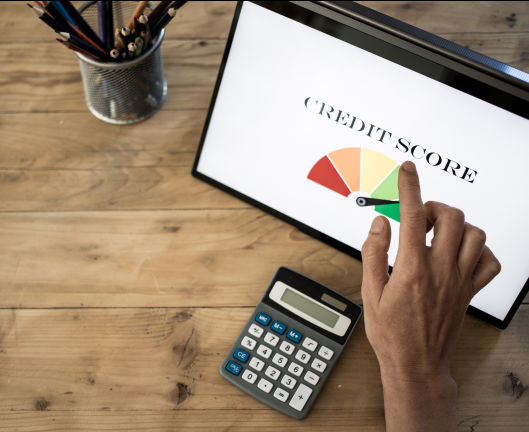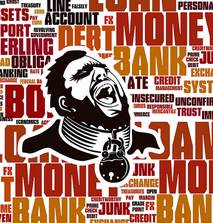Poor credit is one of those pesky things that can feel like a ball and chain. It follows you around, makes certain financial opportunities impossible, and can be downright embarrassing to discuss. But just because you have poor credit doesn’t mean you’re doomed. In fact, there are many actionable steps you can take to improve your credit score and get back on track. In this post, we’ll discuss five things you can do to turn your poor credit around.
Understand Your Credit Score
The first step in improving your credit score is to understand what your score means and how it is calculated. Your credit score is a three-digit number that ranges from 300 to 850 and is based on your credit history and payment habits.
A score below 580 is considered poor, and the higher the number, the better your credit score. You can obtain a free copy of your credit report once a year from each of the three major credit reporting agencies. And often your bank or credit card issuer will offer free online access to your credit report. Review your report carefully and identify any errors or discrepancies that may be impacting your score.
Develop a Plan to Pay Off Debts
One of the main factors that impact your credit score is the amount of debt you have and how you manage it. If you have outstanding debts, it’s essential to develop a plan to pay them off systematically. This will show lenders that you are responsible and capable of managing your finances. Begin by prioritizing debts with the highest interest rates and tackle them first. Also, consider whether debt consolidation or a debt management plan may be a viable option for you.
Setting up a payment plan is an effective way to pay off debts and improve your credit score. First, gather all the information about your outstanding debts, including the amount owed and interest rates. Next, set a realistic budget that allows you to make regular payments towards your debts while still covering your living expenses. Contact your creditors to negotiate a payment plan that works for both parties.
Pay Your Bills on Time (or Early!)
Paying your bills on time is one of the best things you can do to improve your credit. Even if you can only make minimum payments, make sure you’re doing so on time every month. Consider setting up automatic payments or reminders to help you stay on track. If you can, consider paying bills early to help reduce your balance and overall debt. Late payments and collections can stay on your credit report for up to seven years, so it’s worth the extra effort to stay current.
Consider Credit-Building Products
There are various credit building products available that can help you improve your credit score. For example, secured credit cards require a deposit upfront, which serves as collateral. This deposit reduces the risk to the lender, and making regular payments on a secured credit card can help improve your credit score over time.
Another credit-building product to consider is a credit builder loan. With a credit builder loan, you can work with a bank or credit union to secure a small loan, usually ranging from $300 to $1,000. The funds are placed into a savings account and cannot be accessed until the loan is paid off in full. This helps build a positive payment history while also increasing your savings.
Work With Other Types of Lenders If Needed
In some cases, traditional lenders may not be willing to extend credit to individuals with poor credit. But what if you find a great investment opportunity and need financing?
In these situations, hard money lenders can be an alternative option for obtaining financing for specific projects that will increase your income such as flipping properties.
A hard money lender is a private individual or company that offers short-term loans with high-interest rates and fees. Hard money loans are asset-based loans, meaning that they are secured by real property. The benefits of these short-term loans are that you can get approved quickly and you don’t need a great credit score to be approved.
Other types of alternative loans include bridge loans, interest-only loans, and raw land loans.
Seek Professional Advice
If you’re struggling to improve your credit score, consider seeking professional advice from a financial advisor or credit counseling organization. These experts can help you develop a personalized plan for improving your credit score and taking control of your finances. Additionally, they can also provide tips and advice to help you avoid falling into financial trouble in the future.
Finding a great financial professional is an important step in improving your credit score and managing your finances. One way to find a reputable financial advisor is by asking for recommendations from friends, family, or colleagues who have had positive experiences with their own financial advisors. You can also research online for reviews and testimonials from previous clients.
When meeting with potential advisors, be sure to ask about their qualifications, experience, and fees. It’s important to find someone who is trustworthy, knowledgeable, and fits your specific financial needs. Don’t be afraid to shop around and compare options before making a decision. With the right financial professional by your side, you can have peace of mind knowing that you are on track towards achieving your financial goals.
Improving your credit score takes time, patience, and discipline. However, the rewards that come with a good credit score—such as better loan rates, lower insurance premiums, and reduced security deposits—are well worth the effort. By following the tips outlined in this blog post, you can begin to take control of your finances and create a strong financial future for yourself. Remember, it’s never too late to start—start today!
You might also like:





